 Petzlover
Petzlover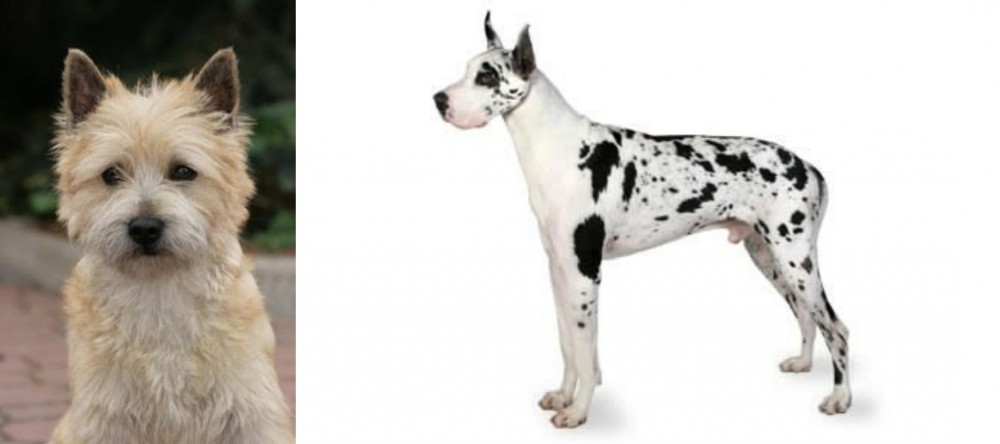 Cairn Terrier is originated from United Kingdom but Great Dane is originated from Germany. Cairn Terrier may grow 53 cm / 20 inches shorter than Great Dane. Cairn Terrier may weigh 82 kg / 180 pounds lesser than Great Dane. Cairn Terrier may live 3 years more than Great Dane. Cairn Terrier may have less litter size than Great Dane. Both Cairn Terrier and Great Dane requires Low Maintenance.
Cairn Terrier is originated from United Kingdom but Great Dane is originated from Germany. Cairn Terrier may grow 53 cm / 20 inches shorter than Great Dane. Cairn Terrier may weigh 82 kg / 180 pounds lesser than Great Dane. Cairn Terrier may live 3 years more than Great Dane. Cairn Terrier may have less litter size than Great Dane. Both Cairn Terrier and Great Dane requires Low Maintenance.
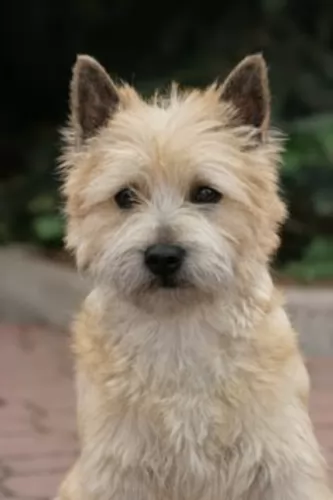 The Cairn Terrier originates in the Scottish Highlands. This feisty little dog was given the name Cairn, as he used to hunt prey between the Scottish cairns. At first the dog was grouped as a ‘Skye Terrier’way back in the 1900s with the Scottish and West Highland White Terrier. Then the different breeds began to be bred separately.
The Cairn Terrier originates in the Scottish Highlands. This feisty little dog was given the name Cairn, as he used to hunt prey between the Scottish cairns. At first the dog was grouped as a ‘Skye Terrier’way back in the 1900s with the Scottish and West Highland White Terrier. Then the different breeds began to be bred separately.
The name Cairn Terrier didn’t appear in print till 1887. It was in 1912 that the Kennel Club of the United Kingdom recognized the Cairn Terrier.
 Known as the Deutsche Dogge or Apollo of dogs, the giant-breed Great Dane hails from Germany and not Denmark as many people believe.
Known as the Deutsche Dogge or Apollo of dogs, the giant-breed Great Dane hails from Germany and not Denmark as many people believe.
The large Great Dane has been around for about 400 years already. They descend from mastiff-like dogs, being needed to protect country estates.
In the 18th century, apart from watching over estates, they were also popular with the upper class for sport.
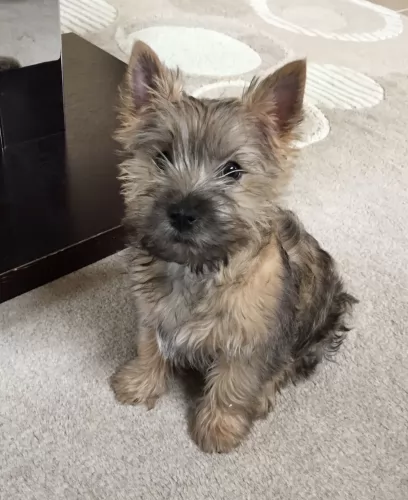 The small sturdily built working Terrier is intelligent and courageous. Bright-eyed, he is small and active and he just loves to work- and party hard with his human family. You’ll see if you’ve got a ball you want to throw for him, his tail is quivering in anticipation and his ears are erect and alert to any noise. He is smart, independent and courageous.
The small sturdily built working Terrier is intelligent and courageous. Bright-eyed, he is small and active and he just loves to work- and party hard with his human family. You’ll see if you’ve got a ball you want to throw for him, his tail is quivering in anticipation and his ears are erect and alert to any noise. He is smart, independent and courageous.
The Cairn Terrier has a tough, weather-resistant coat that can be any color but not white. He has a waterproof double coat – the outer one being wiry while the undercoat is soft. You’ll find the coat in man colours such as grey, black, red and brindle with dark points on the ears and muzzle.
The interesting thing with a Cairn is that when you get a puppy, you can’t be sure what color he will end up being as it changes over the years. The ears are fox-like, small and erect, and the natural medium-to-short tail is held straight out.
 The Great Dame is a tall, lean, athletic, muscular, elegant looking dog. He can stand anything between 76–86cm in height and weigh around 54–90kg. The large head is long and narrow, and the medium sized floppy ears can be left or they can be cropped.
The Great Dame is a tall, lean, athletic, muscular, elegant looking dog. He can stand anything between 76–86cm in height and weigh around 54–90kg. The large head is long and narrow, and the medium sized floppy ears can be left or they can be cropped.
The tail is long and held low. The coat is short and smooth and can be in several colors such as fawn, black or brindle.
Any kind of aggressiveness was bred out of the Great Dane and today he is a gentle giant of a dog, getting on well with other dogs, children and everyone in his human family.
Even though he is a gentle giant, he will still require training and socialization just because of his size. Then they become the devoted pet that they are so well known to be. You'll want to know that when he comes indoors, he will obey you when you tell him to lie-down, sit or come, otherwise his sheer size will see him knocking things accidentally off table-tops.
He is an intelligent dog and is eager to please so he'll learn easily. He craves human companionship, so make sure that your social Dane has plenty of interaction with you.
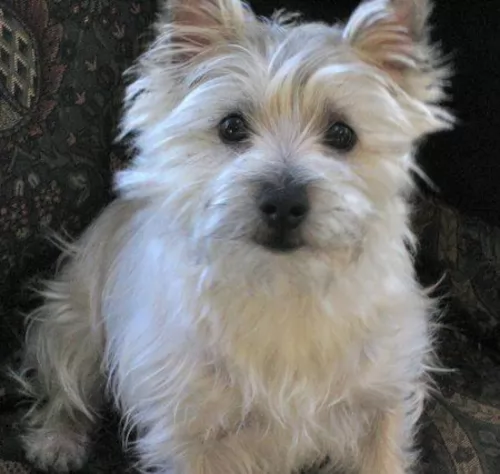 The Cairn Terrier is a fearless, jaunty little dog, known for his courageous spirit and inquisitive nature. He may be small, but he is stubborn. He will respond well to training and socialization which will turn him into the most awesome pet for families. He can make a wonderful friend and playmate for children too. Socialization and training ensures he gets on well with other pets in the household too.
The Cairn Terrier is a fearless, jaunty little dog, known for his courageous spirit and inquisitive nature. He may be small, but he is stubborn. He will respond well to training and socialization which will turn him into the most awesome pet for families. He can make a wonderful friend and playmate for children too. Socialization and training ensures he gets on well with other pets in the household too.
He is small and energetic, and therefore not the kind of dog you can ignore in terms of exercise. He’ll need a good walk every day and he just loves to chase a ball as it takes him back to the days when he was used to chasing- and catching mice.
He isn’t your typical lap-dog at all and with the right care he becomes a devoted, loyal and loving companion.
 The Great Dane is a large breed, bred to hunt wild boar. The intelligence, bravery and fearless nature of the dog meant that he was sought after for this task.
The Great Dane is a large breed, bred to hunt wild boar. The intelligence, bravery and fearless nature of the dog meant that he was sought after for this task.
Known as the Apollo of Dogs, you won’t find the Great Dane being used for hunting purposes anymore, being more suited as a companion dog.
While developed as a working breed, today he is a well balanced, intelligent, calm, loving, social, dependable dog that just wants to be loved by his human family and to provide love, loyalty and companionship back in return.
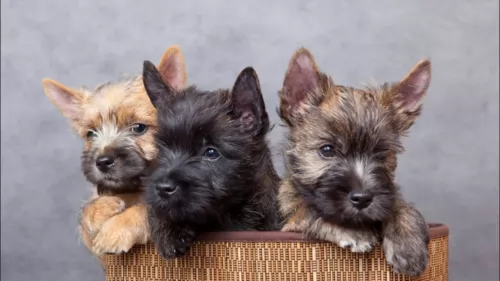 The Cairn Terrier is a robust little dog, and with good care can reach 14 years of age and even older. However, with every dog breed there are some health concerns particular to that breed. With your Cairn Terrier look out for a disease known as Globoid cell leukodystrophy (GCL).
The Cairn Terrier is a robust little dog, and with good care can reach 14 years of age and even older. However, with every dog breed there are some health concerns particular to that breed. With your Cairn Terrier look out for a disease known as Globoid cell leukodystrophy (GCL).
Known also as Krabbe Disease, Globoid cell leukodystrophy (GLD) is a rare but fatal disease. It is caused by a mutation on the dog’s DNA. There is abnormal processing of an enzyme needed for the production of myelin, a substance that protects the nerves in the brain and spinal cord. The dog is weak, it has tremors and isn’t co-ordinated. The Cairn Terrier is a breed of dog more susceptible to GCL.
Your Cairn Terrier may well suffer with joint diseases. These diseases, such as luxating patella which is about loose knee joints, and hip dysplasia which is a degenerative hip disease, can cause plenty of pain and discomfort for your pet.
Glaucoma is an eye disease where there is pressure on the eye, causing inadequate fluid drainage. Without treatment, there can be damage to the optic nerve which can lead to blindness.
 Typically of giant dogs, the Great Dane doesn't have a particularly long life-span and will live to be about 8 to 10 years of age. Also, giant-breed dogs like this are susceptible to what is known as bloat.
Typically of giant dogs, the Great Dane doesn't have a particularly long life-span and will live to be about 8 to 10 years of age. Also, giant-breed dogs like this are susceptible to what is known as bloat.
You'll notice it because there is swelling of the stomach with gas buildup and also twisting of the stomach. It's a life-threatening condition and you'll need to get your dog to the vet as soon as possible. You can combat it by feeding him smaller, more frequent meals and perhaps buying a slow-feeder dish, forcing your hungry pet to eat slower and not gulp his food down.
Also, large dogs like this can develop hip dysplasia and with a dog like the Great Dane, it takes a while for the bones and joints to grow and then become stable. That is why it is important not to make him do any vigorous exercise till he is at least 18 months of age, as these exercises can put a lot of stress on the joints and bones which can lead to hip dysplasia later on.
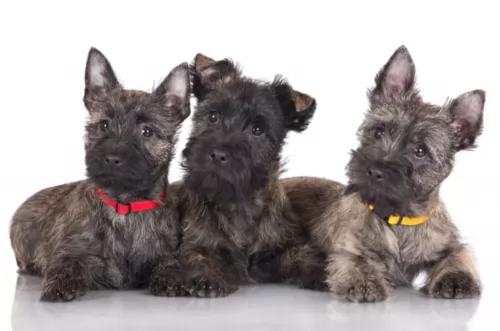 The Cairn Terrier sheds very little and the coat is easy to groom. Give him a thorough brushing twice a week to rid him of loose hairs. Some trimming will be needed as the coat can become shaggy and unruly.
The Cairn Terrier sheds very little and the coat is easy to groom. Give him a thorough brushing twice a week to rid him of loose hairs. Some trimming will be needed as the coat can become shaggy and unruly.
Brush his teeth at least 2 or 3 times a week to prevent tartar build up that can lead to bacteria, gum disease and possible tooth loss.
The Cairn Terrier is small but he is an active dog and therefore needs to be on a high-quality dog food. If you feed him a commercially manufactured food, make sure its appropriate to his age, size and activity levels.
He is a small dog so you want to be careful about not letting him become overweight. Try and alternate his commercially manufactured food with some home-made rice, vegetables and meat and also include some raw meat in from time to time. This is of particular importance as chronic skin allergies are common in all terrier breeds. Make sure that there is always a clean bowl of fresh water available to him day and night.
 This is a large dog so you’ll notice that with commercially manufactured dog foods, there are those made specially for large- or giant breeds. It is important to choose the right dog food for his large size so that you can be sure he gets the right amount of nutrients in for him to grow strong and healthy.
This is a large dog so you’ll notice that with commercially manufactured dog foods, there are those made specially for large- or giant breeds. It is important to choose the right dog food for his large size so that you can be sure he gets the right amount of nutrients in for him to grow strong and healthy.
If you aren't sure about what food would most benefit your Great Dane, ask your vet. While it is important to also feed him quality home-made food and raw meat, when buying kibble for him,check the label of the food you buy him and make sure that the concentration of protein isn’t more than 23 to 25%.
Remember to provide him with a constant supply of fresh, cool water.
Brush your Great Dane’s coat at least twice a week. He has a short, smooth coat so it will be easy, and the brushing will keep his coat soft and shiny. Use this time to also check for fleas and ticks or lumps. You will also need to check his nails and trim them if they don’t trim down on their own.
Your Great Dane will need to be exercised every day if you want him to maintain his lean, muscular shape. It keeps him happy too. He isn’t the kind of dog though that you want to turn into your running partner when you go jogging or cycling. He can go on a walk and play in the garden, but the exercising shouldn’t be for long periods of time.
Every puppy needs to get to the vet for his first check-up when he is 6 weeks of age, and your Dane will also have to. As a puppy he will need to be de-wormed which will happen with this 6 week check up. He will also be vaccinated for distemper.